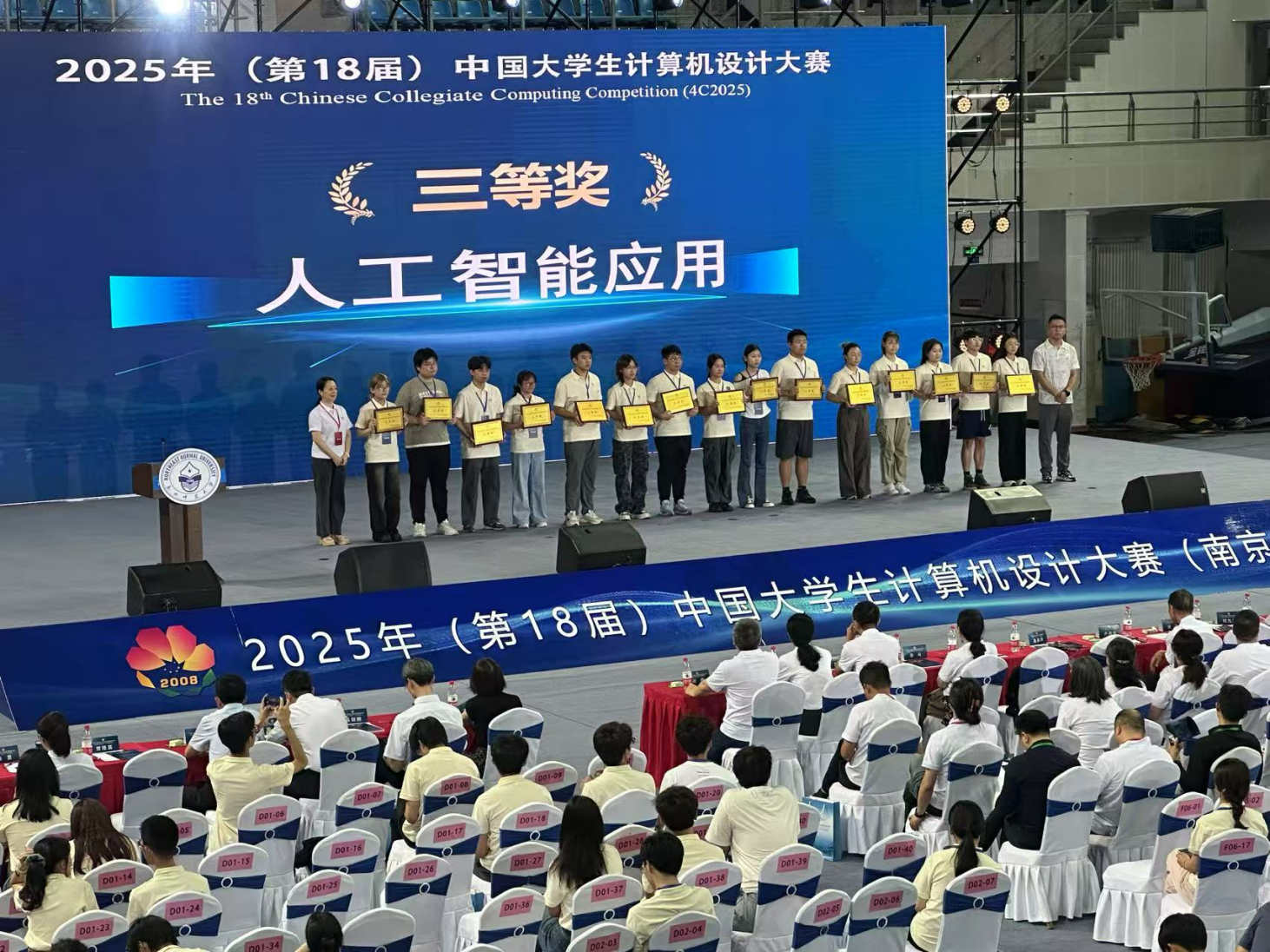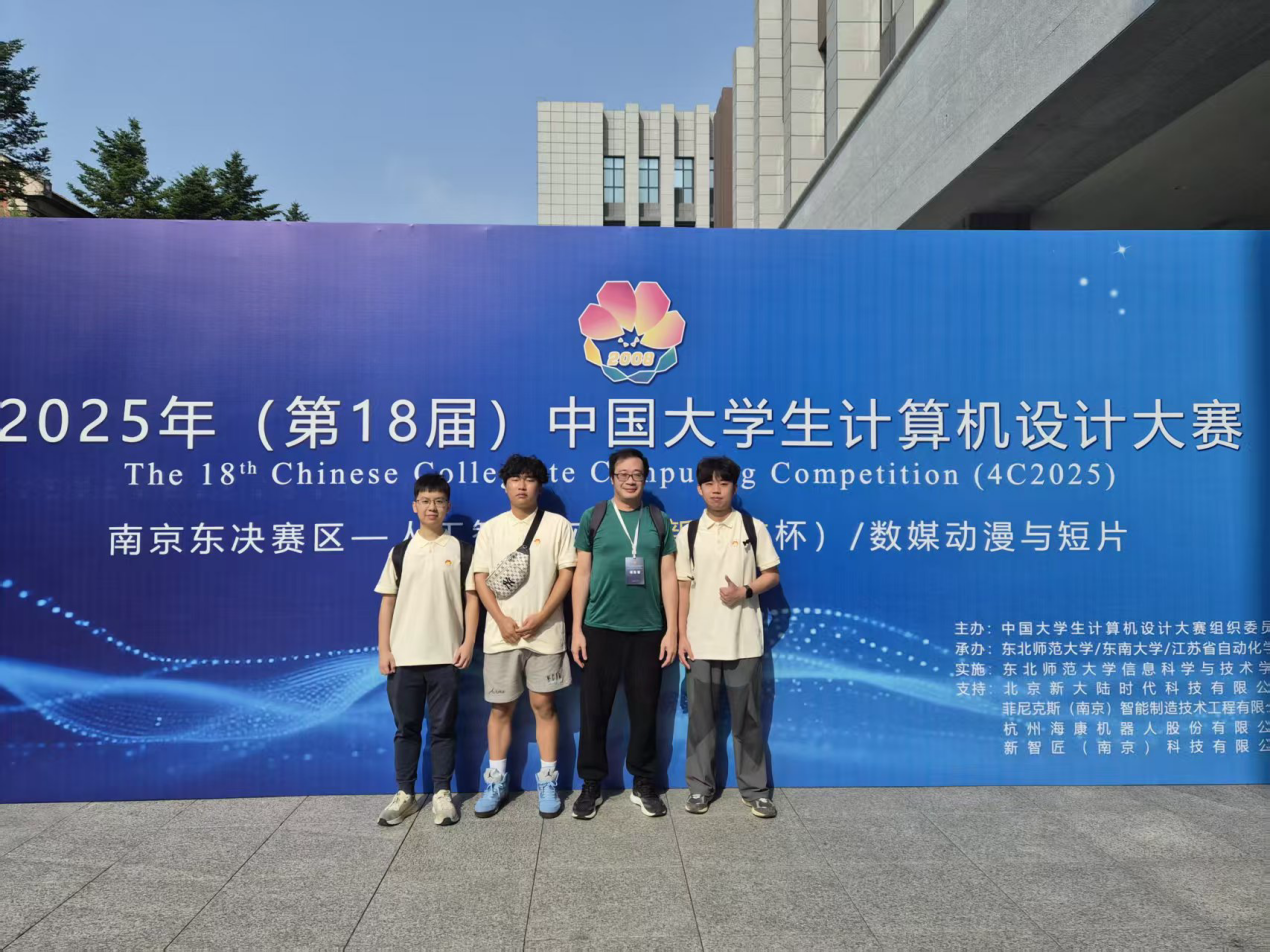From August 13 to 17, 2025, the national finals of the AI Application Track for the 18th Chinese Collegiate Computing Competition (4C2025), Nanjing East Division, were successfully held at Northeast Normal University. The Chinese Collegiate Computing Competition was initiated in 2007, with the first event held in 2008. To date, it has successfully conducted 86 events in 17 sessions. Since 2019, the competition has been included in the "Competition Directory" of the "Chinese National Analysis Report on University Student Competitions," published by the China Association of Higher Education (CAHE). It currently ranks third among computer-related competitions for university students nationwide.

Photo of MUST student Li Zixu (fourth from the left) at the award ceremony
This year, the 4C2025 competition attracted undergraduate students from universities across the country, including participants from the Guangdong-Hong Kong-Macao Greater Bay Area and international students studying in China. The competition was held at three levels: university, provincial and national. After a rigorous selection process, a total of 3,830 outstanding innovative projects nationwide advanced to the finals, competing alongside top institutions from all over the country.
Macau University of Science and Technology (MUST) team achieved excellent results in multiple tracks. The team, consisting of Liu Yuxiang, Li Zixu, and Chen Zhaoyu, third-year undergraduate students from the Faculty of Innovation Engineering, won the national third prize in the finals of the Artificial Intelligence Application track with their innovative project, "Intelligent Contract Search Engine Based on Large Language Models." The project was supervised by Associate Professor Liang Zhiyao from the Faculty of Innovation Engineering and Assistant Professor Li Jiaqi from the Faculty of Humanities and Arts. This project investigated the complexity and length of Ethereum smart contract addresses and source codes by optimizing and upgrading the search engine using four different algorithmic models: TF-IDF, Word2Vec, BERT, and Deepseek. By leveraging large language models, it improves the efficiency and accuracy of natural language searches, aiming to help Dapp developers find smart contracts that better suit their needs.

Group photo of Associate Professor Lo Sio Long (second from the right) with students Chen Zhaoyu, Liu Yuxiang and Li Zixu (from the left)





